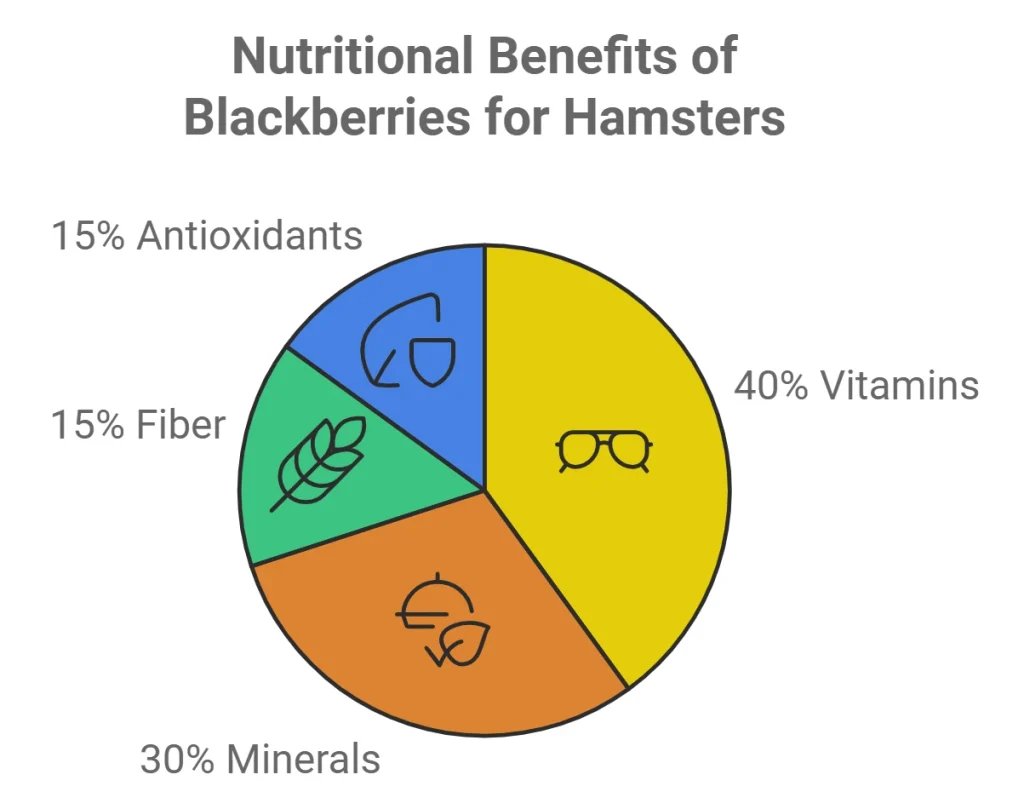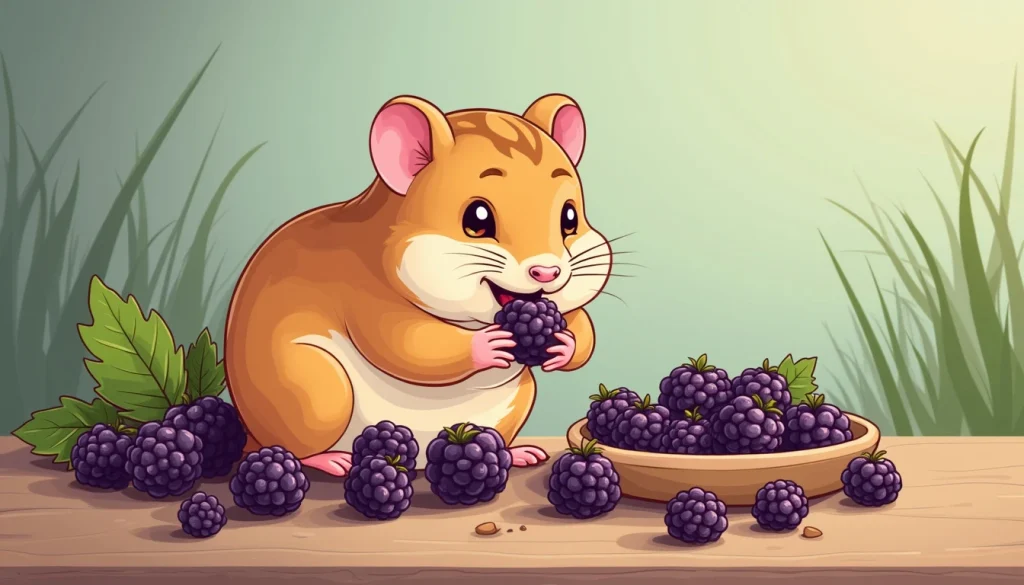Yes, hamsters can safely enjoy blackberries, but there’s more to this fruity treat than meets the eye. While they offer numerous health benefits, it’s crucial to understand the potential risks to ensure your hamster’s well-being. Balancing the good with the bad helps you make informed decisions about what to feed your furry friend, so let’s dive into the details of why blackberries might be a great occasional snack for hamsters.
Nutritional Benefits of Blackberries

Blackberries are packed with nutrients that can support a hamster’s health in various ways:
- Vitamins (C, A, E, K): These essential vitamins play a vital role in supporting your hamster’s immune system, vision, skin, and overall cellular health.
- Minerals (Calcium, Magnesium, Potassium, Iron): These minerals help maintain bone strength, proper metabolism, and overall bodily functions, keeping your hamster active and healthy.
- Fiber: The fiber content in blackberries aids in digestion, promoting a healthy gut and preventing constipation.
- Antioxidants: Blackberries are rich in antioxidants, which help protect hamsters from oxidative stress and inflammation, supporting their long-term health.
Potential Risks of Feeding Blackberries For Hamsters

While blackberries can be a healthy snack for hamsters, there are several risks to consider:
- High Sugar Content: Blackberries contain natural sugars, which, in excess, can lead to obesity, diabetes, and dental problems in hamsters. It’s important to limit their intake to avoid these health issues.
- Digestive Issues: The high water content in blackberries can cause diarrhea if overfed. Diarrhea in hamsters can lead to dehydration, so moderation is crucial to prevent digestive distress.
- Choking Hazard: Blackberry seeds, although small, can be a choking risk for hamsters. To avoid this, always chop the berries into tiny, manageable pieces before serving.
- Pesticides and Toxins: Store-bought blackberries may carry pesticide residues, and wild blackberries can contain harmful toxins. Always thoroughly wash blackberries before feeding them to your hamster, and avoid foraging for wild berries.
Guidelines for Feeding Blackberries
To safely include blackberries in your hamster’s diet, follow these guidelines:
- Introduction to Diet: Start by offering a very small piece of blackberry to see how your hamster reacts. Monitor for any adverse effects like digestive upset before increasing the amount.
- Portion Sizes: For dwarf hamsters, limit the serving size to a small piece no larger than your pinky nail once a week. Syrian hamsters can handle 1-2 small pieces, but still no more than this amount per week.
- Preparation Tips: Thoroughly wash the berries, remove any stems and leaves, and cut them into small, seedless pieces to prevent choking hazards.
- Observation: After feeding blackberries, keep an eye on your hamster for any signs of diarrhea, allergies (such as itching or sneezing), or changes in behavior. If you notice anything unusual, stop feeding the berries and consult a vet.
Conclusion
In summary, blackberries offer a range of nutritional benefits for hamsters, from essential vitamins and minerals to fiber and antioxidants. However, due to their high sugar content and potential choking hazards, they should only be given in moderation and with proper preparation. Always wash the berries thoroughly, chop them into small pieces, and monitor your hamster for any adverse reactions. As with any dietary changes, it’s wise to consult a veterinarian to ensure the best care for your pet’s unique needs. Moderation and vigilance are key to keeping your hamster happy and healthy!

